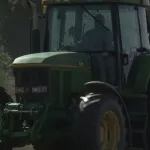
EAST MONTPELIER, Vt. (WCAX) – It’s been six months since floodwaters devastated many parts of Vermont and hit farmers especially hard. Farm First, a nonprofit geared toward supporting farmers’ mental health, has been receiving more calls than ever, which they say points to an end to the stigma in the industry.
Beth Whiting and her husband co-own Maple Wind Farms in East Montpelier. More than 2,000 of their chickens and turkeys drowned during Topical Storm Irene in 2011. Then, they lost their barn in a fire in 2014.
“Maple Wind has seen a lot of climate issues in our 25 years of farming and we’ve been through a lot,” Whiting said. “It’s all about being resilient and leaning on your community. And reaching out for help is really important.”
Going through these trials inspired Whiting to give back to her farming community. She now provides peer support with the group Farm First. which provides free counseling for local farmers. For some, the service has been essential.
“I saw survivor’s guilt for some farmers, a lot of who had very serious impacts and losses because of the heavy rain that just kept going, but didn’t see themselves as being impacted because they didn’t have the catastrophic flooding,” said the group’s Eva Griffin.
Griffin says she hears many farmers experiencing anxiety, depression, frustration, and isolation. It can be from daily problems on the farm to flooding and its ongoing issues. “It’s really pushed the season back a lot.. One really big thing that I’ve heard about — and I think is not still totally resolved — is winter feed supplies for farmers. This year’s harvest of hay and other feed crops was both low in quantity and also in quality,” Griffin said.
Leanne Porter, Farm First’s manager, says Griffin’s ability to connect farmers with resources — like the state’s Farm Feed-Finder Marketplace and with peer or mental health support — is a sign of a change in the industry. “The last few years, the big change we’ve seen is around mental health stigma. Stigma has been a long-time issue for farmers, generational even,” she said.
Her colleague, Jessie Witscher, says that the flooding has encouraged even more farmers to recognize the value in seeking help when they need it and that it’s part of what makes Vermont’s farmers strong.
“When we experienced our challenges, there wasn’t this program. I can totally relate to many farmers that are having struggles of their own, and I’m just glad I can be there to help,” Whiting said.
Related Stories:
Excess manure causing problems for Vermont farmers
Christmas tree crop hurt by soggy summer
Even with dry weather, many farm fields remain sodden
Newsmaker Interview: Vermont farmers underwater
Gov. Scott urges mental health check-ins following flooding
USDA designates Vermont a natural disaster area from July flooding
